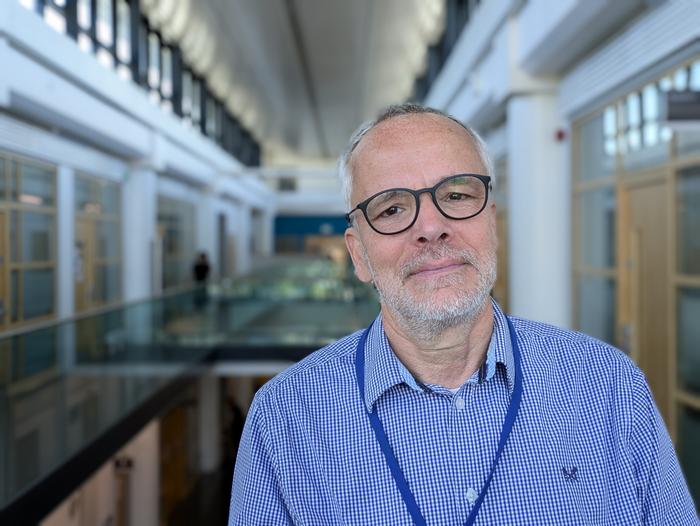Drugs developed to combat HIV and AIDS are being trialled for the first time in patients with multiple brain tumours.

Credit: University of Plymouth
Drugs developed to combat HIV and AIDS are being trialled for the first time in patients with multiple brain tumours.
Scientists at the Brain Tumour Research Centre of Excellence at the University of Plymouth are conducting a clinical trial to see whether using anti-retroviral medications, Ritonavir and Lopinavir, could help people with Neurofibromatosis 2 (NF2).
The rare inherited genetic condition causes tumours such as schwannoma (which include acoustic neuroma), ependymoma and meningioma which develop on the membrane surrounding the brain.
The RETREAT clinical trial, led by Professor Oliver Hanemann, will expand on research by Dr Sylwia Ammoun and Professor Hanemann which showed the repurposed drugs reduced tumour growth and survival in the tumours.
During the trial, which will run for a year, patients will undergo a tumour biopsy and blood test before having 30 days of treatment with the two medications. They will then have another biopsy and blood test to determine if the drug combination has managed to enter tumour cells and has had its intended effect.
Professor Oliver Hanemann, Director of the Brain Tumour Research Centre of Excellence at the University of Plymouth, said: “This could the first step towards a systemic treatment for tumours related to NF2, both for patients who have inherited NF2 and developed multiple tumours, as well as patients who have a one-off NF2 mutation and have developed a tumour as a result. If results are positive and the research develops into a larger clinical trial, it would be the most significant change for patients with this condition, for whom there is no effective treatment.”
Dr Karen Noble, Director of Research, Policy and Innovation at Brain Tumour Research, said: “Brain Tumour Research is committed to funding research that will provide better outcomes for patients, so we are delighted that research undertaken at our Centre of Excellence has progressed into a clinical trial, bringing hope to patients with NF2 and NF2-related tumours. What is great about using repurposed drugs such as Ritonavir and Lopinavir, is that they have already been shown to have a strong safety profile in healthy people and those treated for HIV, which means that they can more quickly be translated from the laboratory to patients.”
The patient perspective
Jayne Sweeney, 57, from Cornwall, UK, was diagnosed with NF2 in 1996, 11 years after discovering she had an acoustic neuroma in her left ear when she was 18. She has 12 tumours growing in her brain and has had five operations to remove tumours from her brain, ear and ankle.
She said: “The RETREAT trial is incredibly exciting, any advancement to improve peoples’ lives is brilliant. A cure for NF2 is too late for me, but I am extremely proud to have been invited onto the trial steering group where I have seen first-hand just how passionate the team is about helping people with this disease. If we can find an effective drug for people newly diagnosed, that would be fantastic.”
In 1985, Jayne became deaf in her left ear following an operation to remove the tumour located there. She was monitored with regular scans, on the expectation she required no further treatment, but the tumour regrew.
Four years ago, a routine scan found a tumour in her right ear, and she is facing complete deafness. More recently a routine scan showed the growth of more tumours throughout her body and brain
“The loss of hearing is the worst thing about having NF2 because it’s very isolating and frustrating,” she said. “I had 15 months’ chemotherapy, and radiotherapy in January this year. Radiotherapy is so barbaric; having four anaesthetic injections into my head was the most painful thing I’ve ever experienced, so finding better and kinder ways to treat the disease is so important.”
Method of Research
Randomized controlled/clinical trial
Subject of Research
People



